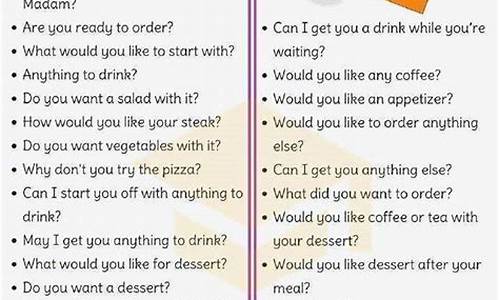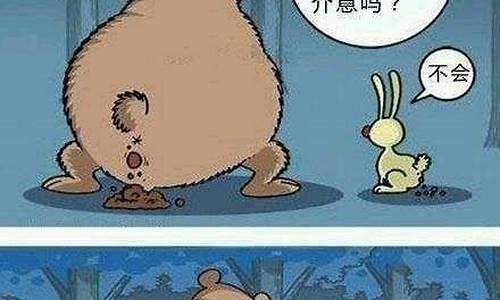饭桌的英文_饭桌常用英语句子有哪些
1.英语语法:“三餐饭”冠词使用规律

Should all the dishes are before the guest, the hostess motioned begins after dinner; before the hostess picks up her spoon or fork, guests can not eat any dish, this is American habit, with some European countries different.
table napkin should spread on the knee; if the napkin, double leg should be stacked in; if small, can be fully opened, although can also napkin around the neck or in the chest, but is not square, so it is best not to do so. One can talk to wipe the napkin on the finger or grease, but never use napkin wiping tableware.
you should sit with your body is, not too forward, also do not cross arms on the table, beside the guest to oid a collision.
4 when using a knife and fork, the right hand with a knife, the left hand with a fork, only a fork, the right hand. When using the knife, not to the blade, but not to send food entrance with a knife, carving knife should be oided in on a plaque; eat noodles, you can roll up and eat with a fork, don't pick, halfway down his knife and fork, knife and fork should be a "eight" shape separately on the plate, such as a fruit knife and fork put together, after that meal.
5 take the bread should use a hand to take the edge, and laid on the side plate or the market, never use a fork to fork bread, butter knife to take butter lication, rather than using individual knives, butter to put out on the side plate, not rubbed directly to the bread, not to cut the bread with a knife, don't put the bread and butter, and should be torn down a small, eat a piece of coating.
6 can only eat salad with a fork, use the right hand fork, fork pointed upward; if the salad at the same time on the bread and cookies, can take a piece of bread or biscuits with his left hand, take on the salad fork.
7 eat fish can use left hand bread, right hand holding a knife to stab, poke, the population has meat bone or bones, do not spit directly into the dish, but with a fork to catch gently released after the session, or as far as possible without introducing attention to hand out, on the edge of the plate, not throw on the table or the ground, fruit nuclear should first vomit, add the plate.
8 when you want to drink water, the mouth should be the first swallow of food, don't rush your mouth water, use glass to drink water, pay attention to wipe the oil stains on the mouth, to protect the cup.
9 do not eat up the dishes hides, soup plate can be tilted, then spoon feeding, drink tea or Coffee don't put a spoon in the cup.
10 food, especially soup, do not make noise, chewing should shut up.
11 don't blow your nose or hiccups table, if sneezing or coughing, should say sorry to the people around.
12 in the table don't floss; if there is something the teeth of non removal can not be, use napkins to cover the mouth, the best so no one else out the presence of another.
13 meals, always keep silence is not polite, should he conversations with people around him, but don't talk when chewing food; even if someone speak to you, they should swallow food and then answer; conversation can not put down his knife and fork, but not holding a knife and fork to shake in the air.
14 in the table, a knife and fork to fetch food lications; only the celery, radishes, olives, fruit, dry cakes, dried fruit, candy, potato chips, corn, Tian chicken and bread to eat with your hands.
15 when the waiter when serving for the guests in turn, walk to your left, before your turn to take food, if the waiter standing on your right, don't take, it is your turn to the right of the guest take food; take food, had better take everything, that makes goodwife; if it is not like to eat a certain food, you can also say: "thank you, no."
16 when the hostess for your Tiancai, you can plate with knife and fork together on top to her or to the waiter; if she ask you, you can't ask more food, that's very impolite.
Some food 17 table, such as bread, butter, jam, pickled cabbage, dried fruit, candy and so on, should be the hostess suggested before feeding; everyone turns to take food, the male guests should be invited to his side's first female guest, or ask her if she wants to let you take some, when eating, not over others take food, if you need something, they should pass behind the others.
18 after the dinner, the guest should wait for the hostess stand up from his seat, then together with the lee; in the meal or lee before the end of the banquet are impolite, stood up, gentlemen should help women chair back to its place, napkin on the table, do not look like folded according to the original, unless you lee the master eat the next meal.
挑几条写上
这个是他的翻译
应等全体客人面前都上了菜,女主人示意后才开始用餐;在女主人拿起她的勺子或叉子以前,客人不得食用任何一道菜,这是美国人的习惯,同欧洲有些国家不同。
2.餐巾应铺在膝上;如果餐巾较大,应双叠放在腿上;如果较小,可以全部打开,餐巾虽然也可以围在颈上或系在胸前,但显得不大方,所以最好不这样做。可用餐巾的一角擦去嘴上或手指上的油渍,但绝不可用餐巾揩拭餐具。
3.进餐时身体要坐正,不可过于向前倾斜,也不要把两臂横放在桌上,以免碰撞旁边的客人。
4.使用刀叉时,应右手用刀,左手用叉,只用叉时,可用右手拿。使用刀时,不要将刀刃向外,更不要用刀送食物入口,切肉应 避免刀切在瓷盘上发出响声;吃面条时,可以用叉卷起来吃,不要挑,中途放下刀叉,应将刀叉呈“八”字形分别放在盘子上,如果把刀叉放在一起,表示用餐完毕。
5.取面包应该用手去拿,然后放在旁边的小碟中或大盘的边沿上,绝不要用叉子去叉面包,取黄油应用黄油刀,而不要用个人的刀子,黄油取出要放在旁边的小碟里,不要直接往面包上抹,不要用刀切面包,也不要把整片面包涂上黄油,而应该一次扯下一小块,吃一块涂一块。
6.吃色拉时只能用叉子,应用右手拿叉,叉尖朝上;如果上色拉的同时也上了面包、饼干的话,可以用左手拿一小块面包或饼干,帮着把色拉推上叉子。
7.吃鱼时可以用左手拿着面包,右手拿着刀子,把刺拨开,已经人口的肉骨或鱼刺,不要直接吐入盘中,而要用叉接住后轻轻放人盘中,或者尽可能不引入注意地用手取出,放在盘子的边沿上,不能扔在桌上或地下,水果核也应先吐在手心里,再放入盘中。
8.要喝水时,应把口中的食物先咽下去,不要用水冲嘴里的食物,用玻璃杯喝水时,要注意先擦去嘴上的油渍,以免弄脏杯子。
9.进餐时不要将碗碟揣起来,喝汤可以将盘子倾斜,然后用汤匙取食,喝茶或喝咖啡不要把汤匙放在杯子里。
10.吃饭,特别是喝汤,不要发出响声,咀嚼时应该闭嘴。
11.不要在餐桌前擤鼻涕或打嗝,如果打喷嚏或咳嗽,应向周围的人道对不起。
12.在饭桌上不要剔牙;如果有东西塞了牙非取出不可,应用餐巾将嘴遮住,最好等没有别人在场时再取出。
13.进餐时,始终保持沉默是不礼貌的,应该同身旁的人有所交谈,但是在咀嚼食物时不要讲话;即使有人同你讲话,也应咽下口中食物后再回答;谈话时可以不放下刀叉,但不可拿着刀叉在空中摇晃。
14.在餐桌上,一路的食物都应用刀叉去取;只有芹菜、小萝卜、青果、水果、干点心、干果、糖果、炸土豆片、玉米、田鸡腿和面包等可以用手拿着吃。
15.当侍者依次为客人上菜时,走到你的左边,才轮到你取菜,如果侍者站在你右边,就不要取,那是轮到你右边的客人取菜;取菜时,最好每样都取一点,这样会令女主人愉快;如果实在不喜欢吃某种菜,也可以说:“谢谢你,不要了。”
16.当女主人要为你添菜时,你可以将盘子连同放在上面的刀叉一起传递给她或者交给服务员;如果她不问你,你就不能主动要求添菜,那样做很不礼貌。
17.餐桌上有些食品,如面包、黄油、果酱、泡菜、干果、糖果等,应待女主人提议方可取食;大家轮流取食品时,男客人应请他身旁的女客人先取,或者问她是否愿意让你代取一些,进餐时,不能越过他人面前取食物,如需要某种东西时,应在别人背后传递。
18.用餐毕,客人应等女主人从座位上站起后,再一起随着离席;在进餐中或宴会结束前离席都不礼貌,起立后,男宾应帮助妇女把椅子归回原处,餐巾放在桌上,不要照原来的样子折好,除非主人请你留下吃下顿饭。
英语语法:“三餐饭”冠词使用规律
As we all know,different countries he different table manners.Today,I’d like to introduce something about Chinese table manners.It’s very necessary to learn table manners in China.In China,table manners are too much.For instance,you are not supposed to eat with knives and forks.Chinese usually use chopsticks instead.But we are not supposed to stick our chopsticks into our food.But we are supposed to pick up our bowl to eat.And we are supposed to let the old start eating first.And we are allowed to talk at the table.However,you can’t talk too loud and laugh too crazily.In fact,in China,table manners are not so serious .so ,you don’t need to worry about them so much.
#英语# 导语冠词是一种虚词,在句子中不重读,本身不能独立使用,只能放在名词前帮助说明名词所指的人或事物,它是英语词性中最小的一类,只有三个,一种是不定冠词(Indefinite Article),一种是定冠词(Definite Article)。此外也有些特定场合不用冠词,即通常所称的零冠词(Zero Article)。其中冠词简称“art.”冠词有不定冠词、 定冠词、 零冠词。 !
一、不用冠词的场合
在通常情况下,表示一日三餐的 breakfast, lunch, supper前不用冠词。如:
Breakfast is served until 9 am. 早餐一直供应到上午9点。
Can you manage lunch on Tuesday? 你星期二能来吃午饭吗?
He you finished supper already? It’s only 5 o’clock! 你已经吃过晚饭了? 现在才5点钟啊!
A snack in the afternoon bridges the gap between lunch and supper. 在午餐和晚餐之间,下午吃些点心补充一下。
Mother said lunch was ready and there was a mad dash for the table. 母亲说午饭做好了, 大家一下子都向饭桌奔去。
注:不连用冠词的用法尤其注意以下搭配:he breakfast (lunch, supper), after breakfast (lunch, supper), at breakfast (lunch, supper), before breakfast (lunch, supper), during breakfast (lunch, supper), for breakfast (lunch, supper), over breakfast (lunch, supper), since breakfast (lunch, supper), without breakfast (lunch, supper)。如:
They were hing breakfast when I arrived. 我到达时,他们正在用早餐。
We got off immediately after breakfast. 我们吃完早餐就动身了。
Please make your beds before breakfast. 请在早饭前把床铺好。
It hened at [during] lunch. 此事发生在吃午饭的时候。
I nearly always go home for lunch. 我差不多总是回家吃午饭。
Do you want a boiled egg for breakfast? 你早饭要吃煮鸡蛋吗?
She scanned the newspaper over breakfast. 她吃着早饭把报纸大略看了一遍。
I hen’t eaten since breakfast. 我吃了早饭后到现在还什么都没吃呢。
I had to go without breakfast this morning as I was in a hurry. 我今早很匆忙, 只好不吃早饭了。
二、用定冠词的场合
虽然在通常情况下,“三餐饭”前不用冠词,但是若要特指某一顿早餐、中餐或晚餐,则可在其前加定冠词。如:
The supper is well cooked. 晚饭做得很好。
Thank you for the breakfast. 谢谢你的这顿早餐。
注:表特指时,除可用定冠词修饰外,有时可用指示代词或物主代词等的修饰。如:
After that breakfast, I never saw her again. 吃了那顿早餐后,我就再没有看到过她。
Why don’t you go for a walk? It’ll give you an etite for your lunch. 你怎么不出去散散步? 散散步午饭时就有食欲了。
三、用不定冠词的场合
若breakfast, lunch, supper受到描绘性定语的修饰,则其前通常要用不定冠词。如:
We had a working lunch. 我们吃了一顿工作午餐。
We had a very late lunch. 我们很晚才吃午饭。
That was quite a decent lunch. 那顿午餐相当不错。
He takes a packed lunch to work. 他带(盒装)午饭上班。
After a quick breakfast, he hurried to the station. 匆匆忙忙吃完早餐,他就赶到车站去了。
I’ve got out of the habit of hing a cooked breakfast. 我已不再保持早餐吃热食的习惯。
We had a quick lunch and finished up with a cup of coffee. 我们匆忙吃了午饭,最后又喝了一杯咖啡。
知识拓展
1. 有时可以有自己的修饰语:此时通常是指所吃的东西。如:
She doesn’t eat much breakfast. 她早点吃得不多。
She always eats very little supper. 她晚饭总是吃得很少。
Take her some breakfast on a tray. 用托盘给她送些早点。
注:有时也可不直接用 much, little 等修饰,而换用其他表达。如:
She never eats much for breakfast. 她早点从不多吃。
2. 有时可以用复数形式:此时通常是指不同种类或不同人所用的早餐、中餐或晚餐。如:
We serve hot and cold lunches. 我处供应冷热午餐。
Does this pub provide lunches? 这家酒馆供应午餐吗?
声明:本站所有文章资源内容,如无特殊说明或标注,均为采集网络资源。如若本站内容侵犯了原著者的合法权益,可联系本站删除。











